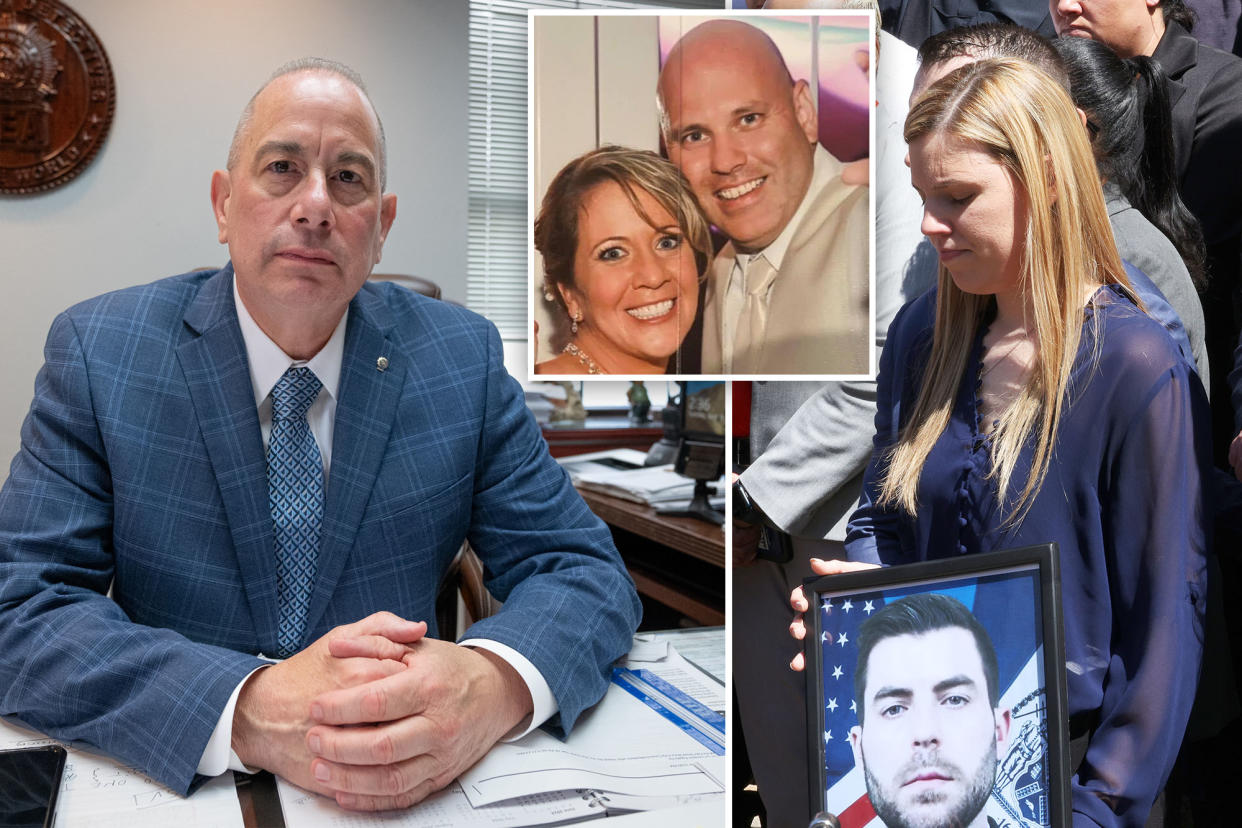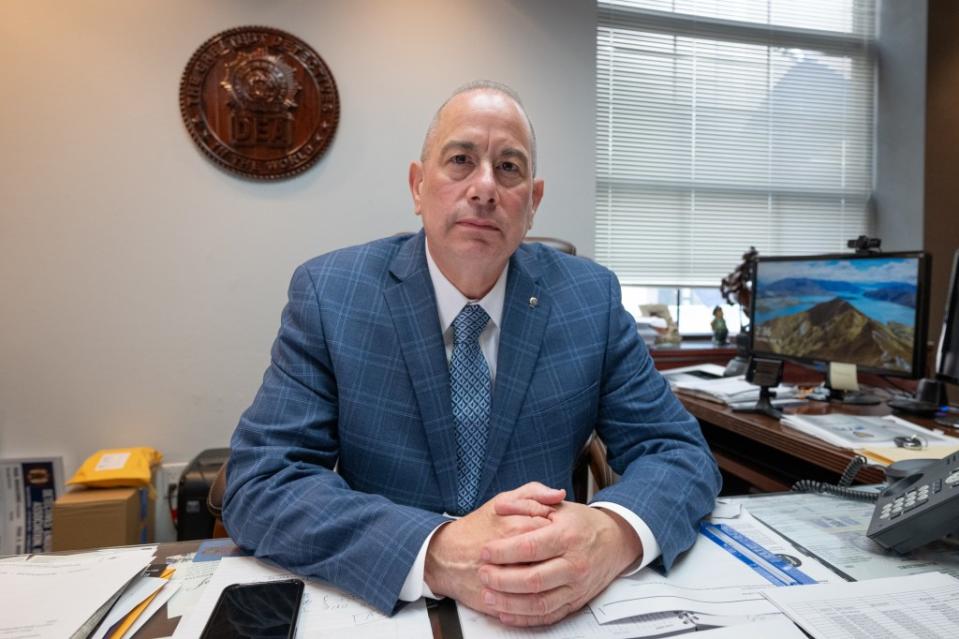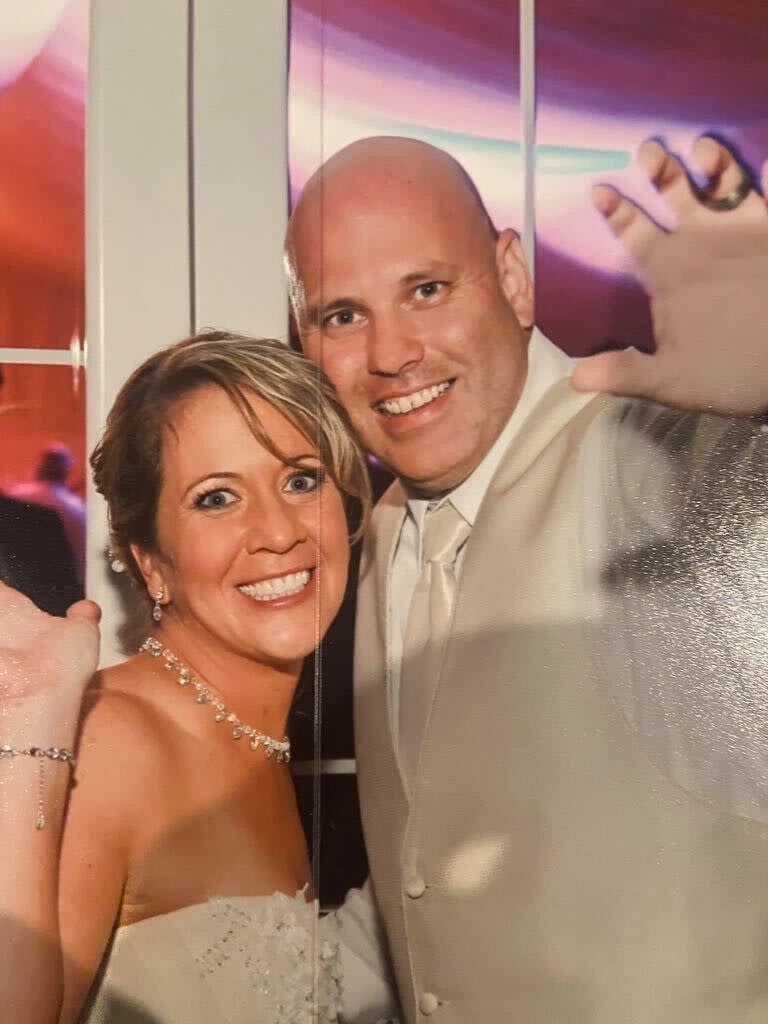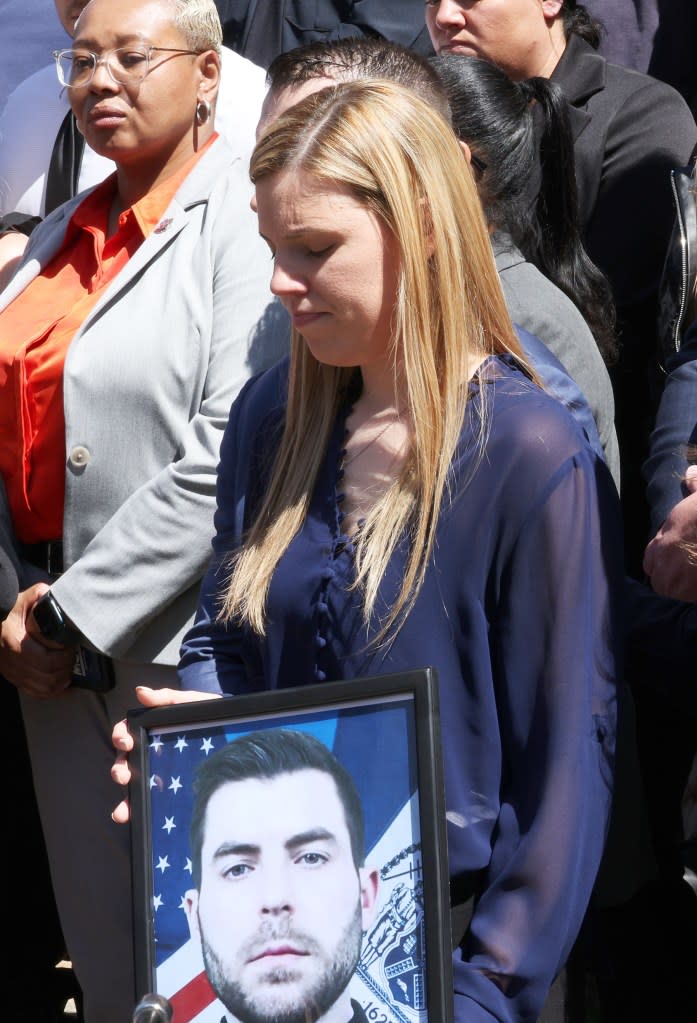NYC detectives’ union head’s last task as prez was labor of love for slain officer

Detectives Endowment Association President Paul DiGiacomo’s last task as head of the union was a labor of love.
He wanted to make sure legislation in the name of Detective Brian Simonsen, who was killed during a Queens phone store robbery in 2019, got signed into law by Gov. Hochul.
The bill requires phone companies to disable phones after they’re reported stolen so they can’t be pawned off by criminals after robberies like the one in which Simonsen was killed.

“If a cell phone is stolen the cell phone company has a certain amount of time to shut that phone down rendering it worthless on the black market,” said DiGiacomo, who’s stepping down as president later this month at 62 years old. “Right now, the phones go for between $400 to $1,000 on the black market.”
The bill’s supporters believe the move will cut down on robberies, burglaries and larcenies.
Simonsen was killed at a T-Mobile store in 2019, when a robber pointed what appeared to be a handgun at him, causing cops who were standing outside the corner store’s glass facade to fire, striking the officer.
The bill is on Hochul’s desk waiting for a signature, DiGiacomo said.
“He didn’t have to go to work that day,” DiGiacomo said, noting that he saw the married 42-year-old cop at a union meeting earlier. “But he went to work and was working on this robbery pattern and lost his life.”
DiGiacomo has been an NYPD police officer and detective for 42 years and can tick down a list of friends and coworkers he’s seen die in the line of fire, especially when he was a young cop working on the Brooklyn South Task Force and Brooklyn Anti-Crime unit during the crack epidemic of the 1980s.
“I remember when [P.O.] Keith Williams was shot and killed,” he said of the 1989 murder. “Quite a few families went through a lot back then.”
DiGiacomo, whose father Paul was a cop, became close to many of the widows of police officers killed in the line of duty.

That prompted him to became a delegate with the Police Benevolent Association and later the DEA.
Today, a folder on his desk contains the names and numbers of all the families of cops killed in the line of duty.
All of them are promoted to detective after they die, giving their loved ones better benefits.
DiGiacomo made sure detectives who died of COVID received line-of-duty death benefits.
“I called it the invisible bullet,” he said. “It was the rank of detective that suffered the most. We lost eight in a couple of weeks.”
He also considers the detectives’ contracts a feather in his cap.

Under his leadership, the members got raises.
Today, he worries about the burgeoning number of guns in the hands of criminals.
“Because of these bail-reform laws the criminal element is becoming more emboldened and they’re carrying guns like they did back in the 80s,” he said, leading to deaths like that of Police Officer Jonathan Diller earlier this year.
“That was another very, very sad day,” he said, recalling seeing Diller’s widow, a new mother, at the hospital. “That’s something that’s burned into my brain.”
He called leaving the department and the union “bittersweet.”
“I’m going to miss it,” the father of two said. “It’s been a big part of my life for 42 years.”

